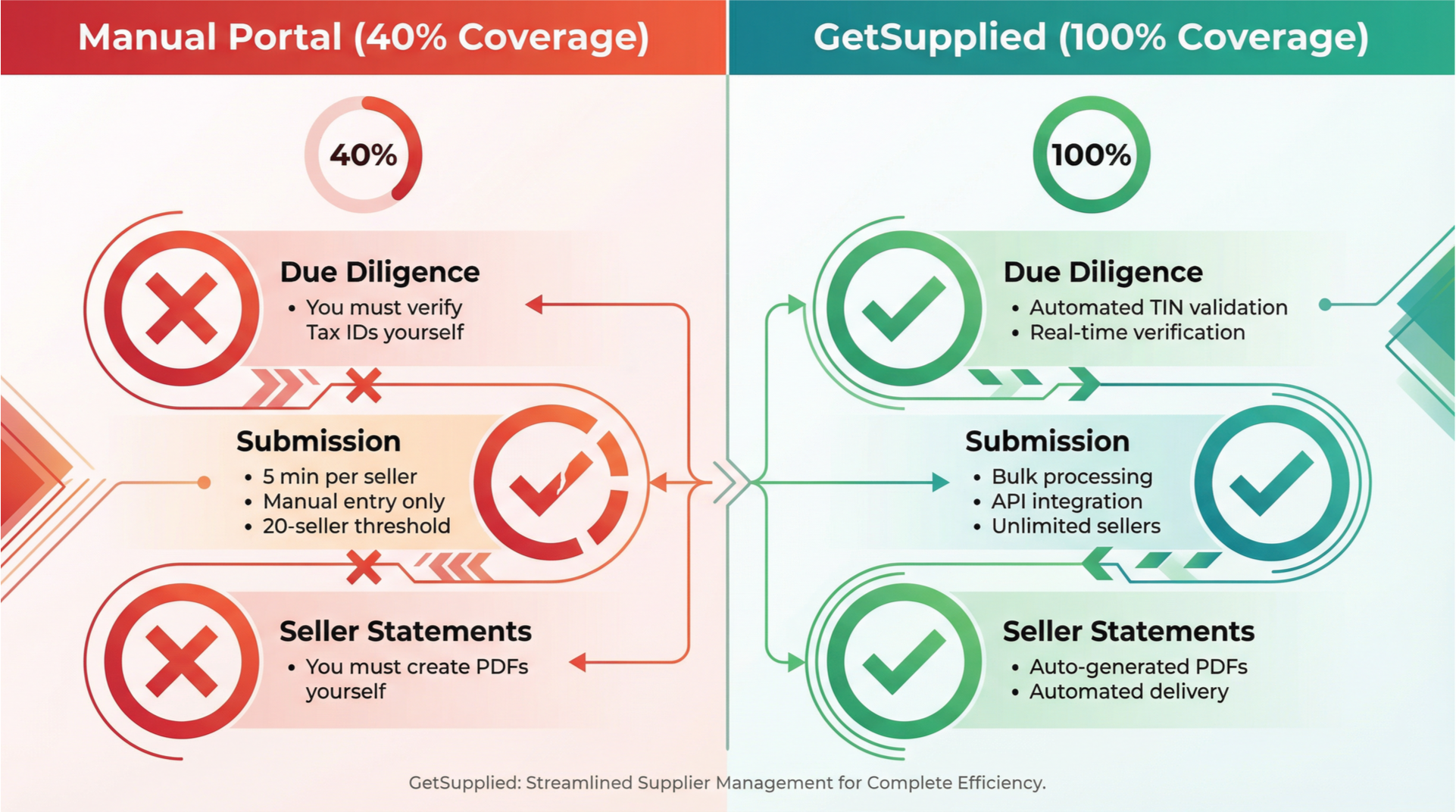What is Digital Platform Reporting?
Digital Platform Reporting refers to new tax transparency rules that require online platforms to collect and report information about the sellers who earn income through them. These rules now apply across multiple regions — including EU DAC7, UK Digital Platform Reporting (DPR), Australia & New Zealand’s Sharing Economy Reporting (SERR), Canada’s platform reporting rules, and the U.S. 1099-K framework.
Platforms such as marketplaces, gig work apps, rental platforms, and service marketplaces must verify seller identities, track earnings, and submit standardized reports to tax authorities to improve transparency and reduce tax evasion.

Are you affected?
Digital Platform Reporting applies to any online platform that enables individuals or businesses to earn income through the platform. This includes marketplaces, gig economy apps, rental platforms, creator platforms, and professional services marketplaces.
If your platform facilitates transactions between sellers and buyers, you may be required to verify seller identities, track income, and submit tax reports in one or more jurisdictions.

See how Supplied Automates all of your Digital Platform Reporting
Learn how our 3-step workflow collects, verifies, and reports seller data automatically and at scale. Saving you time and reducing the risk of fines.



50+ Companies already saving costs
Why it was implemented...
Increasing tax transparency across jurisdictions: Digital Platform Reporting rules were introduced to ensure that income earned through online platforms is properly reported to tax authorities. By requiring platforms to verify seller identity and report earnings, governments gain a clearer view of economic activity occurring across marketplaces, gig platforms, rental platforms, and digital intermediaries.
Creating fair competition: These regulations help level the playing field between traditional businesses and platform-based sellers by ensuring all parties are held to consistent tax reporting standards, regardless of where they operate.digital intermediaries.
Strengthening cross-border cooperation: Because digital platforms operate globally, reporting frameworks (DAC7 in the EU, DRR in the UK, TPAR in Australia, 1099-K in the US, and others) have aligned to support secure data exchange between tax authorities. This improves the ability to detect fraud, reduce tax evasion, and support fair tax governance.
Consequences
Failure to comply can result in significant penalties, operational disruption, and reputational damage.

Penalties and fines
Non-compliance may result in fines, back-tax assessments, loss of registration, or platform operating restrictions—varying by jurisdiction.

Reputational risks
Platforms that mishandle data or fail reporting obligations risk losing the trust of sellers, partners, and payment providers.

Increased scrutiny and audits
Failure to report can trigger ongoing audits, heightened monitoring, and deeper compliance oversight from tax authorities
Tips for implementation...
Digital Platform Reporting can be complex because it requires identity verification, earnings aggregation, and multi-jurisdiction filing.
Working with structured compliance infrastructure minimizes risk and accelerates implementation.
1
Understanding reporting obligations
Each jurisdiction has different rules, thresholds, formats, and deadlines. Start by mapping which reporting frameworks apply to your marketplace and which seller types fall in-scope.
2
Data standardization and automation
Successful reporting depends on consistent seller data and earnings records. Platforms should centralize data flows and automate transformation into each required tax format (XML/CSV/TXT/API).
3
Verification and identity collection
Ensure you are collecting tax IDs, KYC details, and residency declarations from sellers before payouts—this avoids costly remediation later.
4
Scalable Operational processes
Manual reporting does not scale. Use automated validation, exception handling, and filing workflows to reduce operational load and avoid year-end bottlenecks.
Trusted by businesses of all sizes
Security & Trust
Your data is always protected
Reduce risk, accelerate onboarding, and stay globally compliant, all through one API.



Join us
Start your compliance journey
Reduce risk, accelerate onboarding, and stay globally compliant, all through one API.



50+ Companies already saving costs

